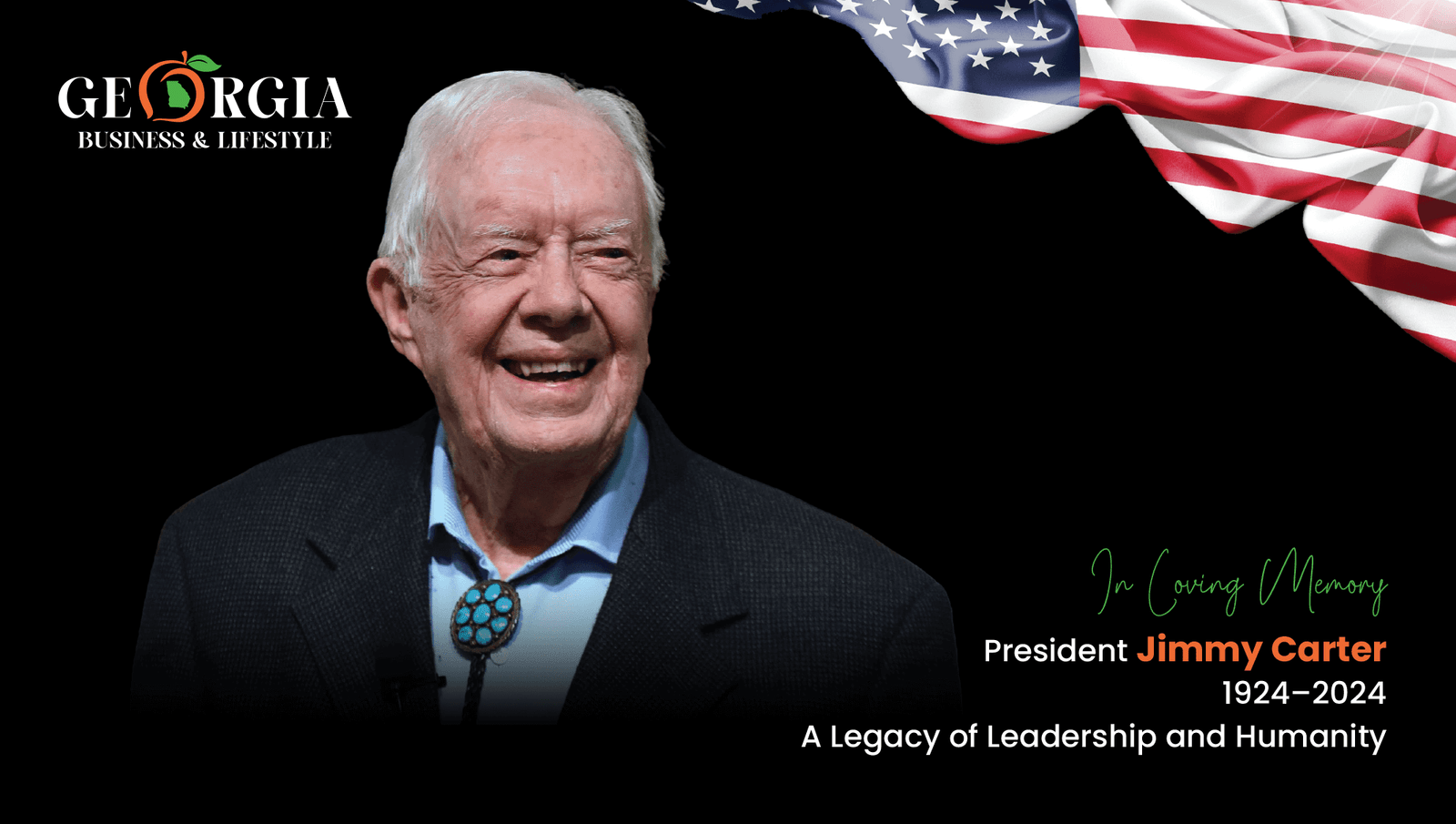Jimmy Carter, the 39th President of the United States, passed away at the age of 100, leaving behind a profound legacy defined by integrity, humanitarianism, and unwavering faith. His journey from humble beginnings in Georgia to the Oval Office and his impactful post-presidency work has made him a global icon of compassion and service.
Early Life and Humble Beginnings
Born on October 1, 1924, in Plains, Georgia, James Earl Carter Jr. grew up in a modest farming family. His upbringing instilled in him a strong work ethic and a deep connection to his community. Carter’s early experiences shaped his progressive outlook on social justice and equality, principles he carried throughout his life.
Naval Career and Marriage to Rosalynn
After graduating from the United States Naval Academy in 1946, Carter embarked on a career in the Navy, serving as a submariner. Around this time, he married Rosalynn Smith, his lifelong partner and an influential figure in his personal and political journey. Their partnership became a cornerstone of his success, both in public service and in humanitarian endeavors.
Political Rise: From Georgia Governor to US President
Carter entered politics in the 1960s, serving as a Georgia state senator and later as governor. His tenure as governor was marked by progressive policies on civil rights, education, and environmental conservation.
In 1976, Carter ran for the presidency, presenting himself as a Washington outsider with a focus on restoring trust in government after the Watergate scandal. His campaign resonated with voters, leading to his victory over incumbent President Gerald Ford.
Key Achievements as President
Jimmy Carter’s presidency (1977–1981) was characterized by his focus on human rights, environmental policies, and diplomacy. Despite challenges such as the energy crisis and economic inflation, his administration achieved significant milestones:
- Camp David Accords (1978): Carter brokered a historic peace agreement between Egypt and Israel, earning worldwide acclaim.
- Energy Policy Reforms: He championed renewable energy and conservation, paving the way for long-term environmental initiatives.
- Human Rights Advocacy: Carter placed human rights at the forefront of U.S. foreign policy, influencing diplomatic relations globally.
Challenges During His Presidency
Carter faced considerable challenges during his term, including the Iran hostage crisis and economic struggles at home. These issues contributed to his defeat in the 1980 election by Ronald Reagan. Despite the setbacks, Carter’s principled leadership and moral compass were widely respected.
A Transformational Post-Presidency
Many regard Jimmy Carter’s post-presidency as his most impactful period. He established The Carter Center in 1982, focusing on human rights, global health, and conflict resolution. Key achievements of his post-presidency work include:
- Eradicating Diseases: His efforts in combating diseases like Guinea worm and river blindness saved countless lives.
- Election Monitoring: Carter became a global advocate for free and fair elections, monitoring over 100 elections worldwide.
- Humanitarian Work: His hands-on involvement with Habitat for Humanity demonstrated his commitment to uplifting underserved communities.
Faith and Humility: The Cornerstones of His Life
Carter’s deep Christian faith guided his life and decisions. As a Sunday school teacher, he inspired millions with messages of hope, service, and humility. Even as a world leader, Carter remained connected to his roots, often returning to his hometown of Plains to engage with his community.
Honors and Recognition
Carter’s lifetime of service earned him numerous accolades, including the Nobel Peace Prize in 2002 for his efforts in promoting peace, democracy, and human rights. He is remembered not only as a former president but also as a peacemaker, philanthropist, and humanitarian.
Personal Reflections on Legacy
Carter often described himself as “a man of faith and principle.” His humility and tireless dedication to improving the lives of others defined his legacy. As he once said:
“My faith demands that I do whatever I can, wherever I am, whenever I can, for as long as I can, with whatever I have, to try to make a difference.”
Jimmy Carter’s Enduring Impact
Jimmy Carter’s legacy extends far beyond his presidency. His life serves as a testament to the power of compassion, humility, and dedication to public service. The world mourns his passing but celebrates his extraordinary contributions that have left an indelible mark on humanity.
Jimmy Carter, the 39th President of the United States, will be remembered as a leader of conviction, a humanitarian, and a man of faith. His centenarian life was a beacon of hope and an example of selfless service.
As we reflect on his remarkable journey, his enduring message of love, peace, and humility continues to inspire future generations.












